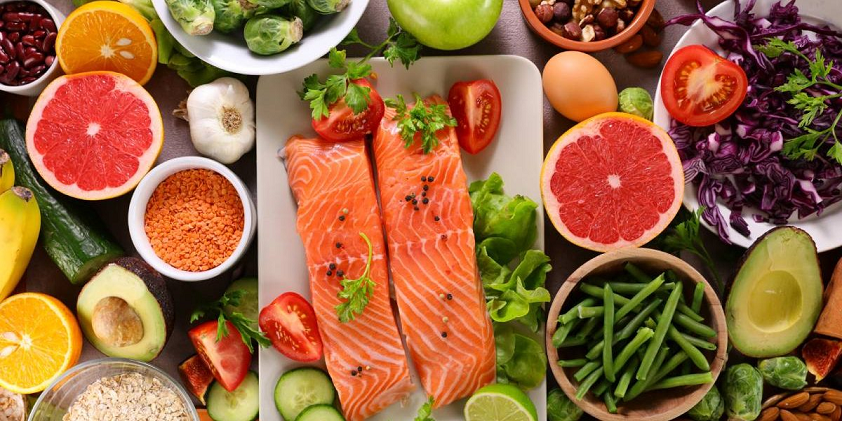Introduction
Well Health Organic Fitness Tips combines physical health with a clean, chemical-free lifestyle. It means choosing foods that are free from pesticides, incorporating natural movement into your routine, and focusing on overall well-being. The idea is to harmonize the body and mind through simple, mindful choices.
Well Health Organic Fitness Tips This type of wellness isn’t about extreme workouts or fad diets. It emphasizes balance, nature, and sustainability.
Benefits of Organic Living for Fitness
Adopting an Well Health Organic Fitness Tips lifestyle impacts your health in many positive ways:
- Reduced Toxins: Eating organic minimizes exposure to harmful pesticides and chemicals.
- Improved Energy: Clean foods improve digestion and metabolism.
- Better Immune Function: Natural foods are rich in antioxidants and nutrients.
- Sustainable Weight Loss: Balanced organic eating encourages healthy body composition.
- Mental Clarity: Cleaner food and regular exercise help improve mental focus and reduce anxiety.
By merging Well Health Organic Fitness Tips living with fitness, you create a powerful foundation for a long, healthy life.
Nutrition Tips for Well Health

a. Choose Whole Foods
Whole, unprocessed foods provide the highest nutrient content. They include:
- Fresh vegetables and fruits
- Whole grains
- Legumes
- Nuts and seeds
These foods nourish the body while maintaining stable energy levels.
b. Go Organic When Possible
Organic foods are grown without synthetic pesticides, herbicides, or GMOs. Choose organic for:
- Apples
- Berries
- Leafy greens
- Dairy and meat products
Prioritizing organic produce reduces chemical intake and supports environmental health.
c. Hydration Is Key
Drink at least 8 glasses of filtered water daily. Staying hydrated helps with:
- Muscle recovery
- Digestion
- Skin health
- Brain function
Avoid sugary drinks and opt for natural alternatives like herbal teas or coconut water.
d. Balanced Macronutrients
Ensure your meals include the following:
- Carbohydrates (whole grains, fruits)
- Proteins (beans, eggs, grass-fed meats)
- Fats (avocados, olive oil, flaxseeds)
A well-balanced plate fuels workouts and keeps you satisfied longer.
Also Read: Everything You Need to Know About Wheon.com Health News: Your Guide to Trusted Health Information
Organic Food vs. Processed Food
| Feature | Organic Food | Processed Food |
|---|---|---|
| Nutritional Value | High | Low (often depleted by processing) |
| Chemicals | Minimal or none | High (preservatives, additives) |
| Digestibility | Easier | Can be hard on the digestive tract |
| Environmental Impact | Eco-friendly farming | Industrial-scale pollution |
| Long-Term Health | Supports immunity and wellness | May contribute to chronic illness |
Choosing organic food gives your body what it truly needs—pure nutrition without the harmful extras.
Natural Fitness Routines That Work
Forget extreme fitness trends. Instead, build a natural and sustainable workout routine that suits your body and lifestyle.
a. Bodyweight Training
Use your own weight to stay in shape:
- Push-ups
- Squats
- Planks
- Lunges
These exercises improve strength and flexibility without gym equipment.
b. Outdoor Workouts
Nature offers a perfect fitness space:
- Hiking
- Jogging
- Swimming
- Biking
Outdoor workouts expose you to fresh air, sunlight, and a natural environment that enhances mood.
c. Yoga and Stretching
Yoga promotes strength, flexibility, and inner peace. A daily 20-minute session helps:
- Reduce stress
- Improve posture
- Enhance core stability
Organic living includes inner balance—and yoga fosters that perfectly.
d. Functional Movements
Incorporate movements that mimic daily life:
- Lifting
- Reaching
- Carrying
- Climbing
Functional fitness reduces the risk of injury and keeps you active as you age.
Sleep and Recovery
Rest is crucial to Well Health Organic Fitness Tips. During sleep, the body repairs itself and builds strength. Aim for:
- 7–9 hours of sleep per night
- A dark, quiet sleeping environment
- No screens 1 hour before bed
- A relaxing bedtime routine
Use organic cotton bedding and consider aromatherapy (lavender oil) to enhance sleep naturally.
Mental Wellness Through Organic Living

Your mental state plays a significant role in fitness and health. Here’s how to align your mind with an Well Health Organic Fitness Tips:
a. Mindful Eating
Eat slowly. Savor each bite. This improves digestion and prevents overeating.
b. Stress Reduction
Daily stress can derail your health goals. Try:
- Meditation
- Journaling
- Nature walks
- Breathing exercises
These natural methods help calm the nervous system.
c. Limit Digital Exposure
Too much screen time increases anxiety and decreases sleep quality. Try a digital detox once a week.
d. Connect With Nature
Spending time outdoors boosts serotonin and reduces cortisol, the stress hormone.
Daily Habits for Sustainable Fitness
Good health is built on daily actions. Add these to your routine:
| Habit | Benefit |
|---|---|
| Morning Stretch | Enhances circulation and energy |
| Drinking Lemon Water | Alkalizes the body and aids digestion |
| 10,000 Steps Daily | Supports cardiovascular health |
| Organic Meal Planning | Prevents unhealthy eating |
| Screen-Free Bedtime | Promotes deep sleep |
| Gratitude Practice | Improves mental well-being |
Consistency is more important than intensity. Small steps lead to lasting results.
Frequently Asked Questions (FAQ)
Q1. What does “well health” mean?
Answer: Well health refers to a balanced state of physical, mental, and emotional well-being. It emphasizes prevention and a proactive approach to maintaining wellness.
Q2. Why is organic food better for fitness?
Answer: Organic food provides clean, nutrient-dense fuel without synthetic chemicals. This leads to better digestion, improved energy levels, and long-term health benefits.
Q3. Do I need to go to the gym to stay fit organically?
Answer: No. Organic fitness encourages natural movements like walking, yoga, and home workouts. These are often more sustainable and enjoyable than intense gym routines.
Q4. How do I start eating organically on a budget?
Answer: Focus on buying organic versions of the “Dirty Dozen” (produce most contaminated by pesticides), shop at farmers’ markets, and buy in bulk when possible.
Q5. Is organic living only about food?
Answer: No. It includes your entire lifestyle—clean eating, natural beauty products, eco-friendly cleaning items, and holistic wellness practices.
Q6. What are some quick organic meals?
Answer: Try quinoa bowls with roasted veggies, avocado toast with hemp seeds, or overnight oats with chia and berries.
Q7. Can organic living help with weight loss?
Answer: Yes. Organic foods often contain fewer empty calories and more fiber, which supports digestion and satiety, making weight loss more achievable.
Q8. How long before I see results?
Answer: Many people report improved energy and digestion within 1–2 weeks. Physical changes like weight loss and muscle gain usually appear after 4–6 weeks with consistent effort.
Final Thoughts
Adopting Well Health Organic Fitness Tips into your life can lead to a vibrant, energized, and sustainable lifestyle. From the food you eat to the way you move and rest, each choice matters. Focus on balance, consistency, and mindfulness. When your body is fueled by nature and moved with purpose, the results speak for themselves.
Start small. Swap one processed item for something organic. Take a 10-minute walk in the sun. Drink water first thing in the morning. These seemingly minor habits create major change over time.
